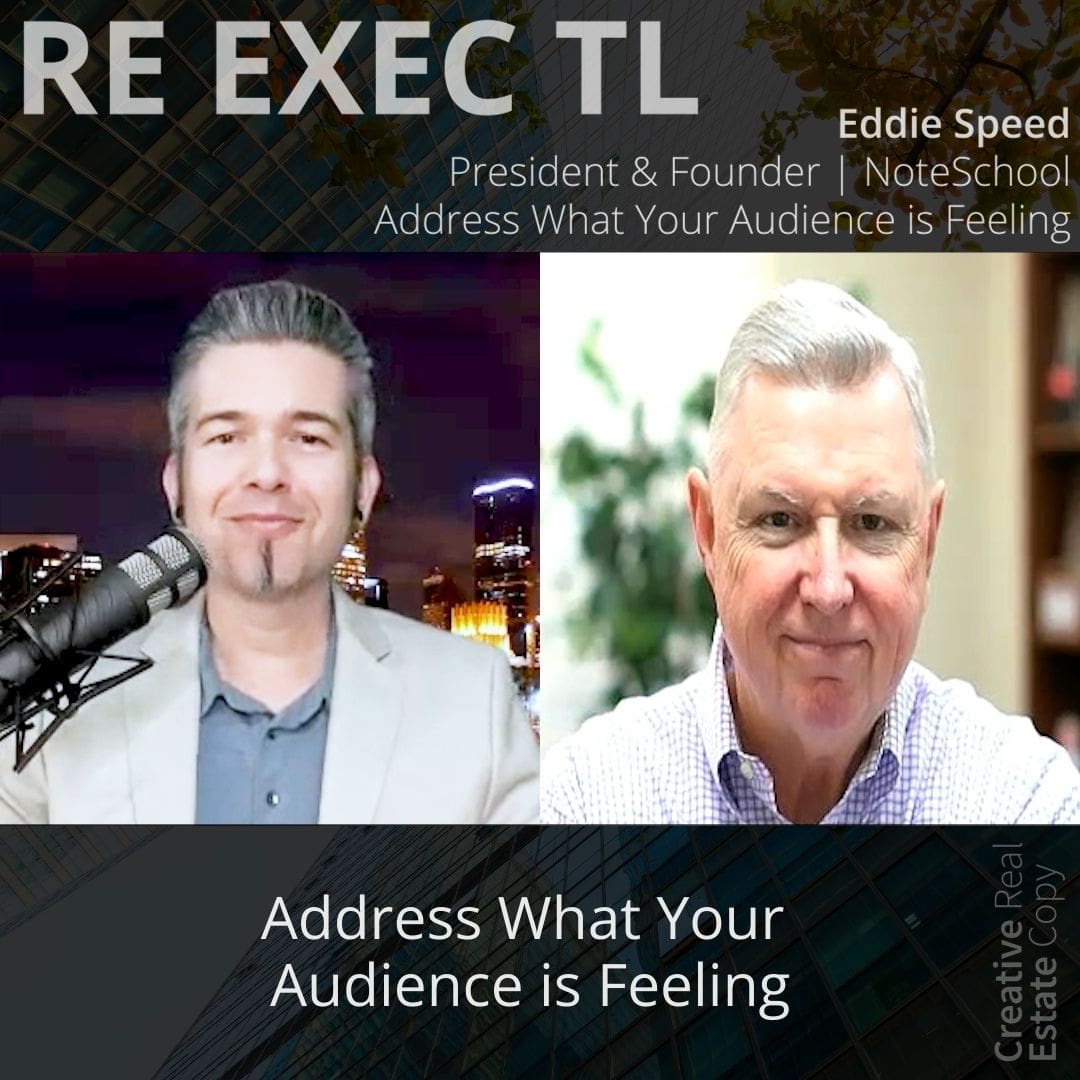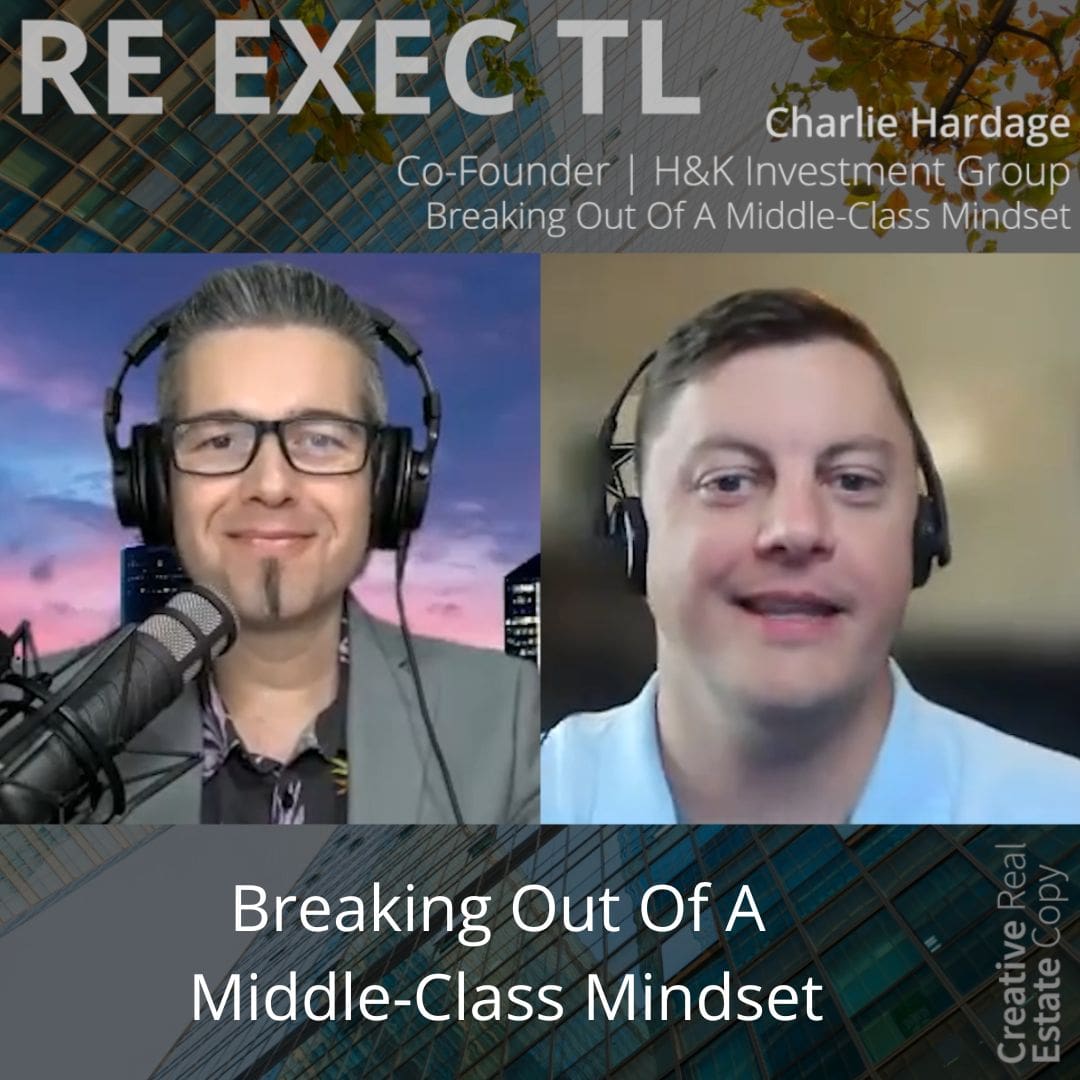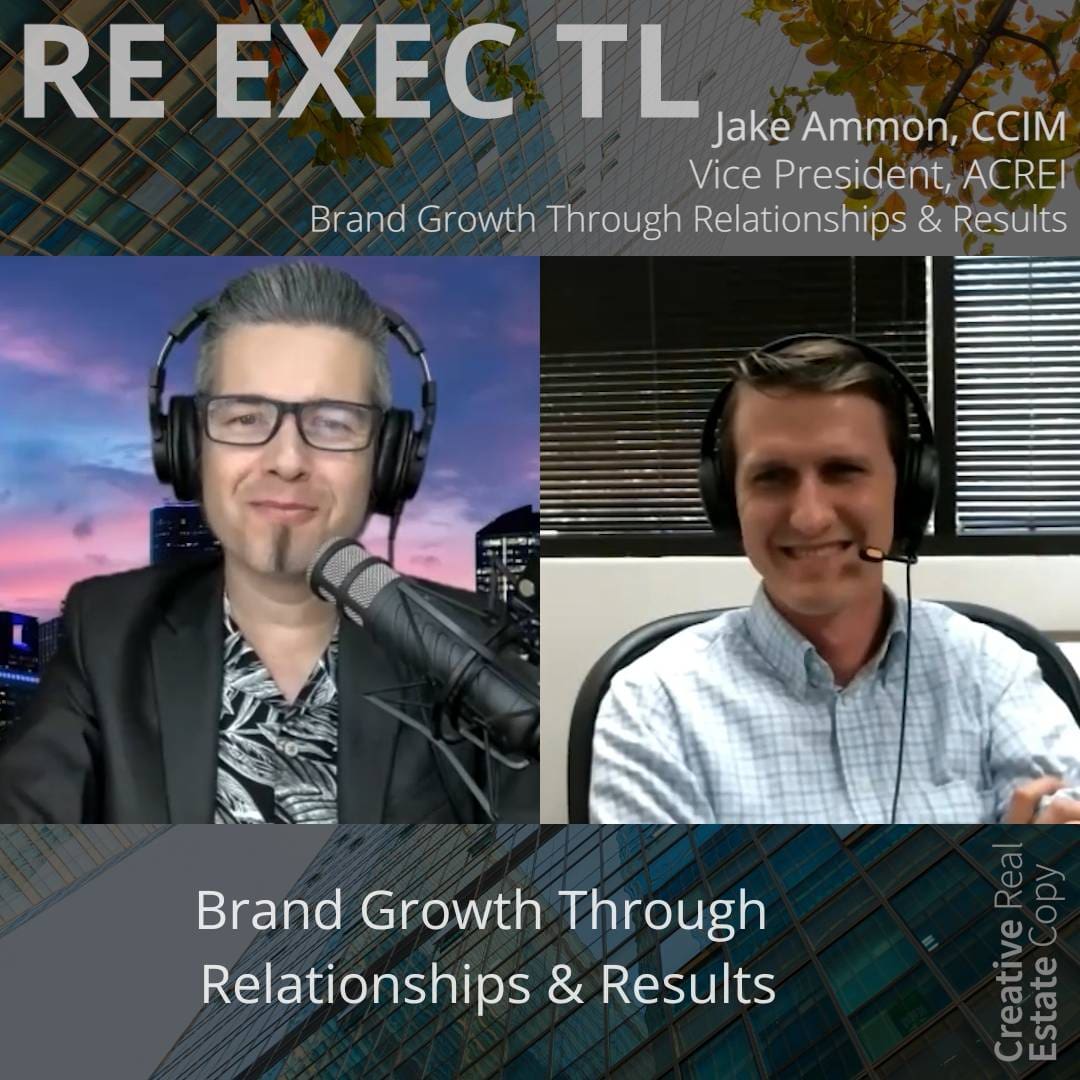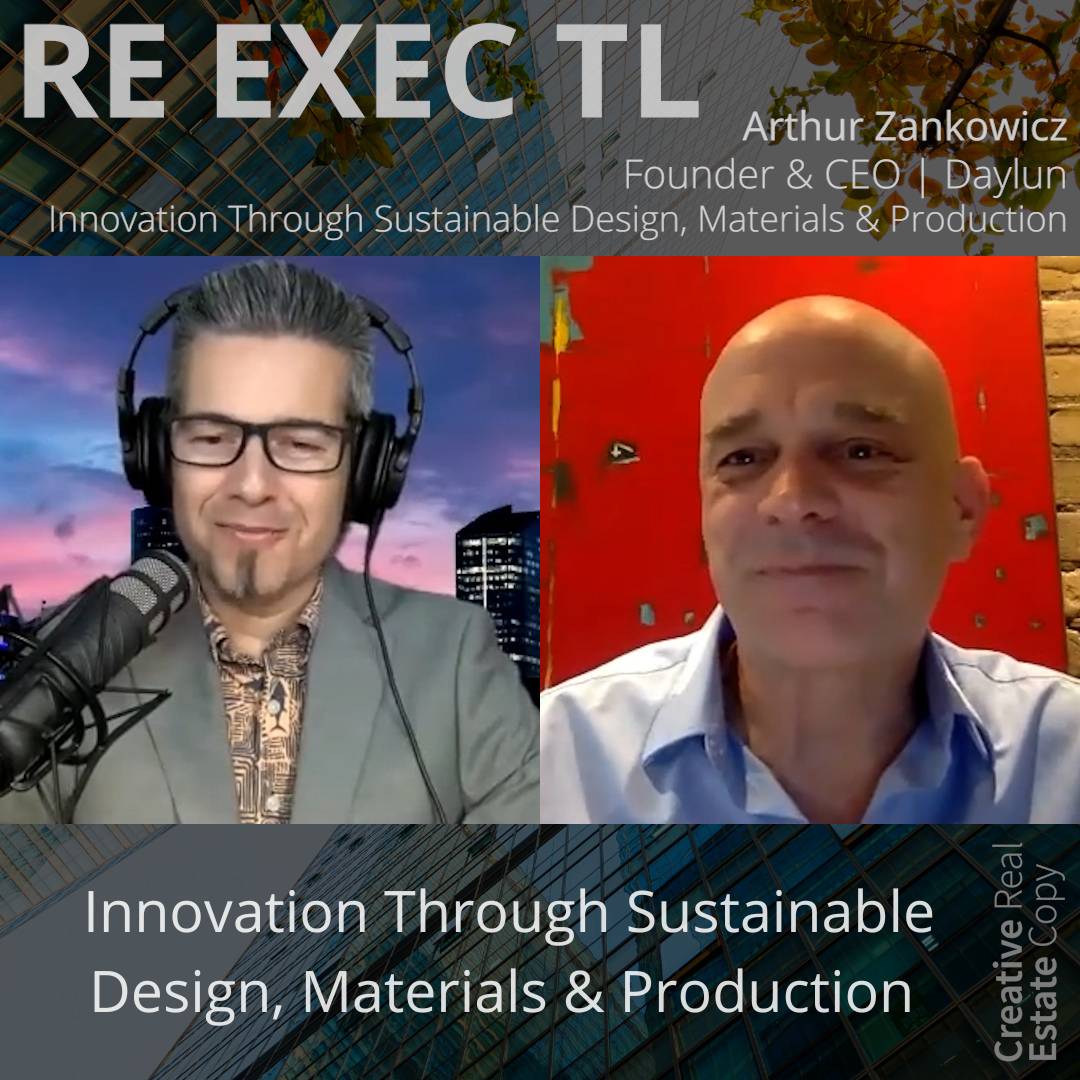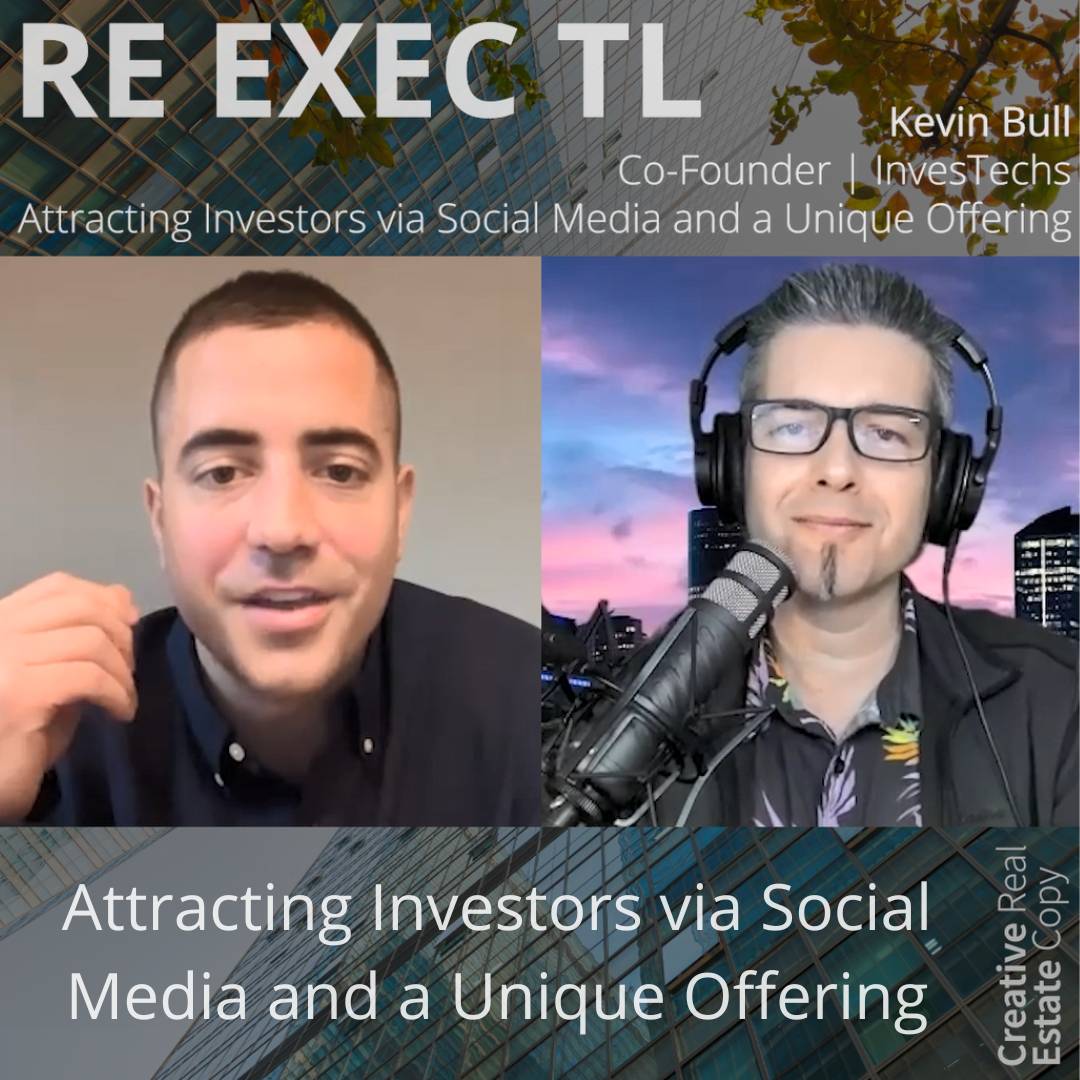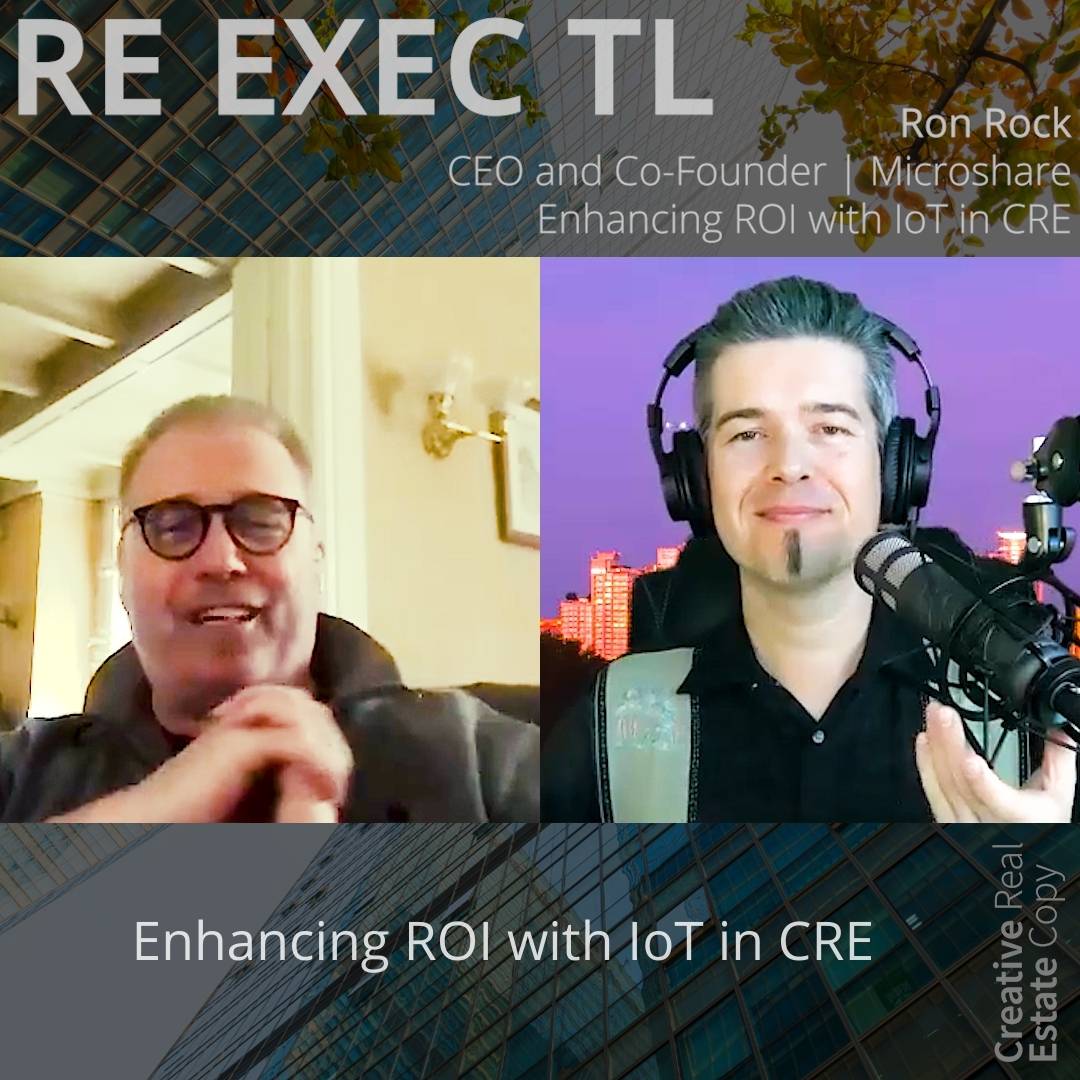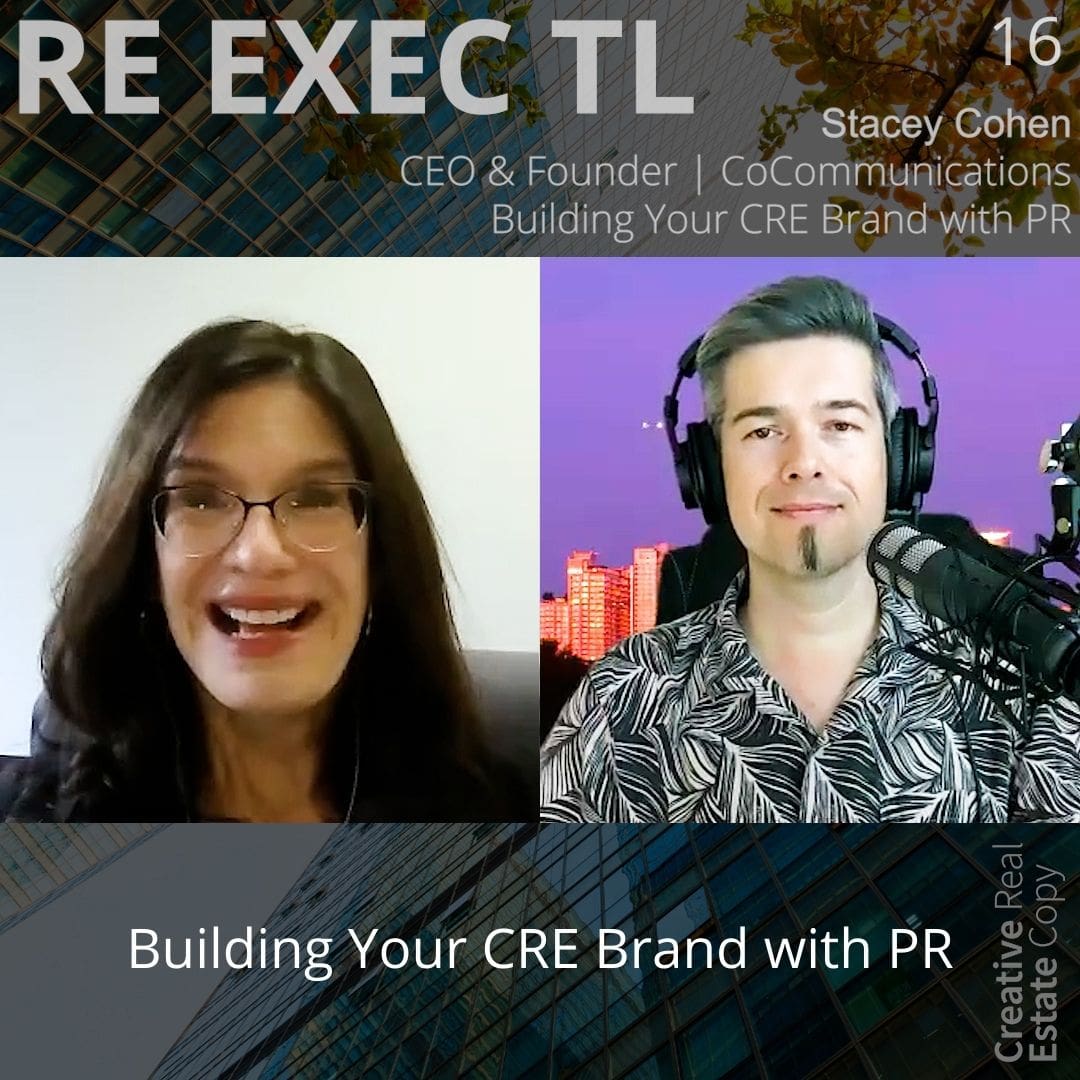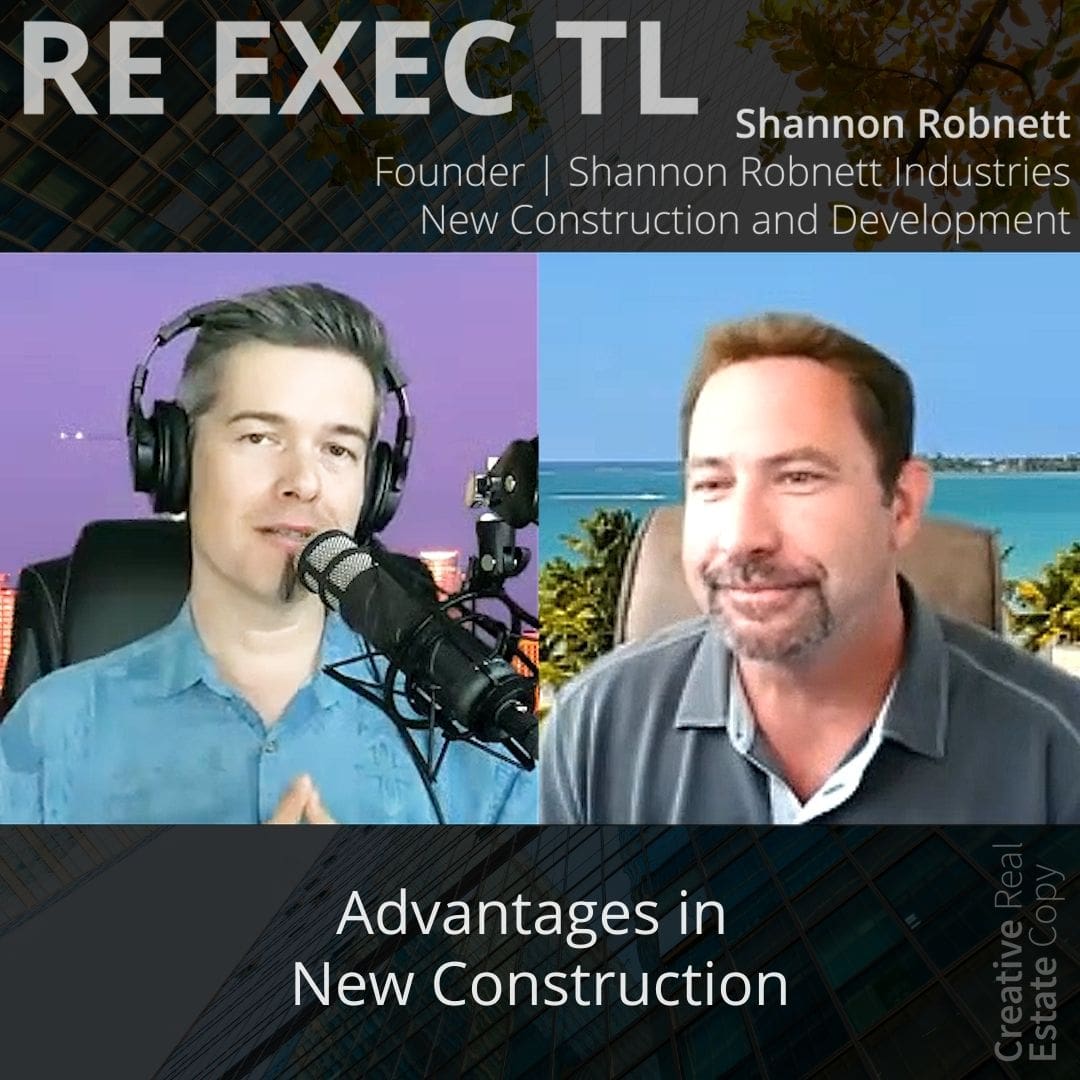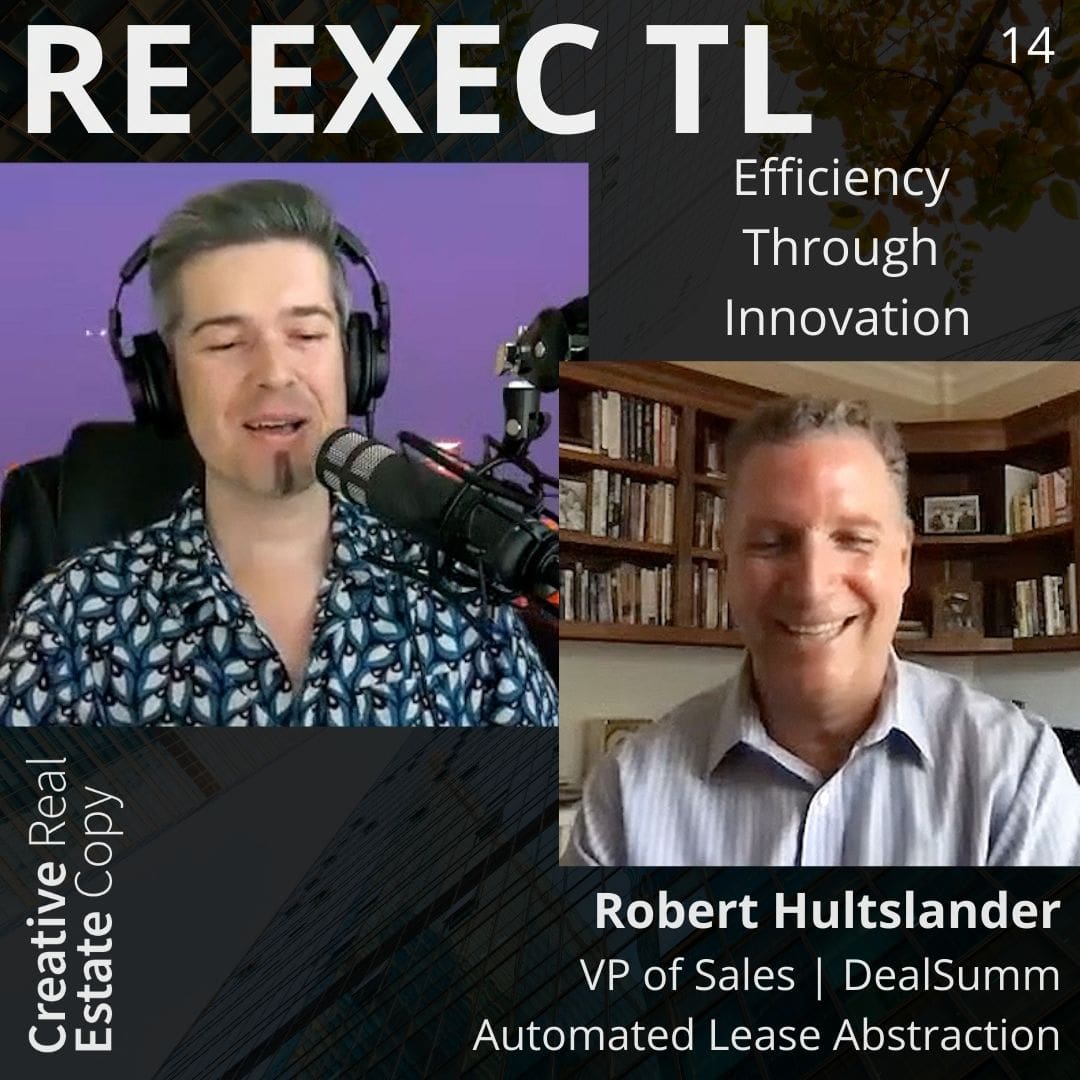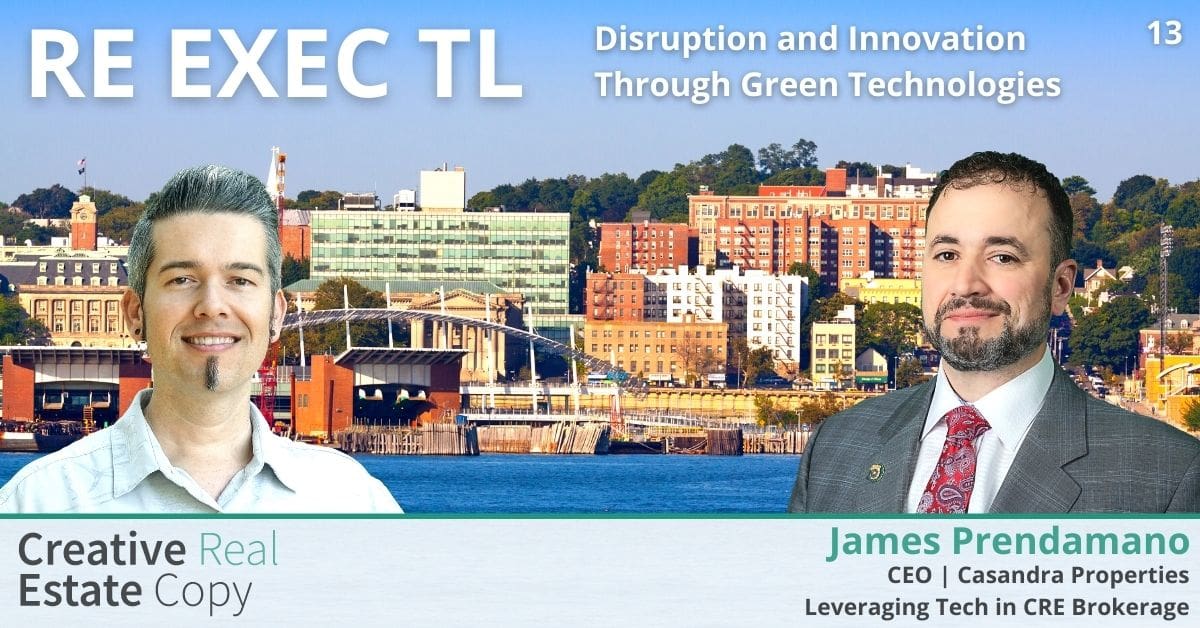Shannon will also share his insights on why teams function best when everyone has an equal voice, the value of happy employees, and why thought leadership is about being a teacher, student, and building trust.
Show Transcript
Kirky: [00:00:00] Hi, Shannon! Welcome to the show!
Shannon: [00:00:01] Good morning!
Kirky: [00:00:01] Let’s start talking about your professional background. Please tell us about your experience in commercial construction and development.
Shannon: [00:00:07] Kirky, I’ve got a little bit of an unusual background in that my mom was a third-generation Realtor. My dad was a general contractor, and so I got the blend of, “Hey, if we sell it, we can build it. If we build it, we can sell it.” And so I always saw that growing up, and it propelled me into more of a problem-solving role rather than a general contractor role.
Every time I would go out and look at what’s happening in the market, I would see where I could solve a client’s problems by building a new building. And so that’s really what led me down the road of becoming a general contractor and a developer. As I realized that my talent was better solving problems, which was more of a developer role, and then not wanting to involve a general contractor in training somebody else, I just evolved my company into being a development general contractor.
We self perform the development that we propose. After 25 years of doing that, we’ve gotten fairly decent at it and have gotten quite a portfolio of accomplished projects and things like that.
Kirky: [00:01:04] What appeals to you about real estate investment?
Shannon: [00:01:07] What doesn’t appeal to me? I get in trouble when we go on vacation because I pick up the dirty real estate magazines to see what’s going on in a new town. Everything about real estate is intriguing. The value that you can create, the passive income that you can create, the inheritable assets, the step-up basis, the tax benefits – there’s really not a lot to dislike about it other than maybe the occasional bad tenant.
Kirky: [00:01:29] What motivated you to start your own company?
Shannon: [00:01:31] I think my parents really instilled that in me that working for someone else wasn’t going to get you there. It’s going to provide you with an income; it’s going to provide you with something that you’re gonna equate to stability – which it really isn’t. And it goes back to the first business that my brother and I started. I was 13 and he was 11 and we’ve always been that way in our family.
I think my family, it felt more awkward. If you went and got a job, you wouldn’t be accepted at Thanksgiving, rather than if you were an entrepreneur, and I think that’s just the way we were brought up.
Kirky: [00:02:02] Let’s talk about your professional direction. What does success look like for you in five years?
Shannon: [00:02:06] One of the things that I’ve really enjoyed about what we’re doing right now is the education of others. The bringing other people into our deals, through our syndication. With that education process, they’re understanding how to become a better, more intelligent investor. They’re having success, we’re having success – everybody’s succeeding.
That to me is more important, because in real estate you have good years, you have bad years. Some days you’re the bat – some days you’re the ball, but at the end of the day, when you’ve got people that you’ve helped succeed, you’ve got people that you’ve taught, you’ve got people that believe in you when you’re having a bad day or you’re having a bad year.
Those people are going to be there for you because they understand how you have integrity, how you have knowledge, and that’s going to promote a growth that even five years, ten years from now, you’re going to have that background where you can look back on and go, you know what? I helped these guys. We had a successful project here. And to me, the short answer is probably, two to three thousand doors of developed projects with a lot of happy, successful investors, but more importantly, the happy, successful investor part.
Kirky: [00:03:11] What professional development tools and resources are you engaging? Books, programs, anything like that?
Shannon: [00:03:15] I’ve always been an avid reader, and I continue to make sure that I’m an avid reader. I read things as dry as How to Beat the IRS at Your Taxes. Love hearing what other thought leaders in the industry are putting out there. Whether it’s Chris Voss, his book Never Split the Difference, or Joe Fairless, his book, just about anything I can consume, I do, because the reality is the more I know, the more I have the ability to help someone else when they’ve got that question and I can point them to a resource that’s bigger than me.
There’s a certain amount of validity that comes with 193 pages of written word. And when you have become that level of thought leader, that you’ve published a book, there’s huge respect for you in the marketplace. And when I can point to that and say: “Sally, you should look at this: You know How to Be Your Own Banker is a fantastic book, about how to use whole life policies with real estate development. And it’s an amazing resource.”
And when you can reach everybody with some bit of information that isn’t generated by Shannon Robnett, but is generated by an outside independent third-party – it validates who I am.
I found a lot of professional growth and personal growth in understanding what other people find to be valuable and then mimicking parts of that and putting that into my puzzle to make a more rounded, more complete person. And then just to lighten things up, I read some books that are fiction and nonfiction, just for fun.
Kirky: [00:04:34] Real estate, especially investment, can be stressful: How do you decompress from daily business?
Shannon: [00:04:38] Yeah, it definitely can. I think a whole person needs to have a balance in their professional and their work-life. And I know that in real estate, it’s very easy to get overwhelmed with the work-life part. I recently moved to Puerto Rico for tax purposes, and so I typically spend the morning with a nice hour-long walk on the beach. I’ve learned to take time for myself. I love to take my plane and go flyin’.
Really make sure that I take time for myself. I take time with my family, because if you’re not at a hundred percent or if you’re being consumed by something else, I’ve got hundreds of instances in my life where my professional focus has led me down a path that if I had a more balanced self at the time that I was making the decisions would have been different and the outcome would have been more positive. But when you let your professional life push you too far, the decisions you’re making in a reactionary state – they don’t come out right.
And so you’ve really got to make sure that you’re hitting on all cylinders, you’re taking care of your body, you’re taking care of your mental space. You’re giving yourself the room to breathe, because there are not a whole lot of Elon Musk’s out there that can function at that high level for that duration. Most people can’t. And most people prove that they can’t by splattering all over the freeway with too many buckets of stuff that they’re trying to handle.
Kirky: [00:05:54] Let’s talk about your company. What does your company offer and who do you serve?
Shannon: [00:05:57] I have three distinct companies. One is a property management company, one is a construction company, and one is a development and syndication company. Our goal is to serve the whole project. We are a for-hire construction company. We’re always active in the market building other multifamily, industrial, office space for others.
It gives us a great pulse on the market, so we can keep current on pricing and where trends are going. We have a development construction company that is out. We just tied up another 10 acres, looking to do some more multifamily in the marketplace. That allows us to develop and take out for our syndication groups to serve our investors and then the property management side of things.
If you haven’t noticed by now, I’m a little bit of a control freak on controlling all the angles. The property management company really allows us to asset manage instead of property manage. And for those of us that have been in the business for a long time, we really understand the difference between property management, which is about managing the property and being reactionary, and asset management, which is a proactive engagement of your customer, which is the tenant, to create the highest level of returns based on the best outcome for the property – not the company of property management. And so there’s a big difference there. We blend those companies together to bring the experience that if you’re a brand new investor or a sophisticated investor, or somebody looking to have us build some multifamily for you, all of those things can be accomplished and managed inside of one umbrella company called Shannon Robnett Industries.
Kirky: [00:07:19] You already touched on what I’m going to ask: What are your core competencies and what is your unique value proposition? In other words, what do you do best?
Shannon: [00:07:25] That for me is really easy, and surprisingly, it’s not construction. I believe what my core competency is spotting talent and developing talent in others. And being able to do that allows me to build a team that can take care of the customer, build a team that can take care of the challenge, build a team of investors that can understand what they really want.
And out of that, you’re developing character, not developing cashflow. You’re really investing in others that are then investing back in the decision. So I really believe that while I’m decent at development and I think I’m fairly good at construction management, I’m really best at spotting talent in others and finding those, because there’s a lot of people out there that do specific tasks a lot better than me, and putting them in a place, in a position, that helps them become extremely successful, which boosts our overall success very well.
Kirky: [00:08:14] What geographic markets are you operating in and what are your plans for growth?
Shannon: [00:08:18] Geographically, we are really confined to Idaho. But when you look at what’s been happening in Idaho over the last five to seven years, there’s been an explosive amount of growth from people moving out of the metropolis areas, even before COVID happened.
And we’ve been trying to grow with that growth. We’ve had over half a million people moving into a state that only had a million people in it five years ago. So you’re seeing some astronomical growth. And the reality is, I’ve lived in that market for 40 years – I don’t need to go anywhere else.
I have more work than I can handle. I have more development deals than I can do. And so I don’t have to push myself to do a deal in Tucson and then look at Tallahassee – and as long as we’re staying with ‘T’ names – do a deal in Toledo. We get to specifically stay in a market that we know very well and it gives us more of that control.
Kirky: [00:09:02] Now, I’d like to ask you for some of your insights on real estate investment. Why is investing in real estate syndications the best alternative to the stock market?
Shannon: [00:09:09] Let’s just start with something simple called the IRS tax code. We know there’s nothing simple about that, but look at the advantages. A lot of people look at the IRS tax code as a penal code and it’s not. It’s something that encourages you to do certain things and discourages you from doing others.
But if you just look at what that can do. If you invested a hundred thousand dollars in the stock market this year, you’re going to see some pretty phenomenal growth, but you would have seen that also that phenomenal growth in real estate. And I believe the numbers are fairly comparable, but you’re not going to see depreciation.
You’re not going to see the ability to sell real estate and reinvest it in other real estate without being taxed, like you would with a stock. If you sold Tesla, you’re up $400 on your stuff. You’re going to pay taxes on that $400 before you can reinvest it. You’re not going to see the tenacity or the rebound ability of certain companies.
We’ve all heard of Enron, WorldCom – they’re no longer here. People lost millions. Bernie Madoff made off with a lot of peoples’ money because there was no physical assets behind what he was doing. When you really look at what syndication does, it allows you to pair with people who are like fund managers on the stock side when you’re investing in actual hard assets.
So at the end of the day, even a bad market, doesn’t wipe out the asset itself like it would with the paper asset or the lack of asset behind the paper that the stock market does. And so I think that there’s so many reasons why that’s there. But the main thing is that you still have a physical asset at the end of the day.
Kirky: [00:10:31] How do you raise capital for deals in commercial, multifamily, and industrial?
Shannon: [00:10:35] The biggest thing that I find is we don’t necessarily try to raise money – we try to educate people. I’m always looking at other people’s deals. I’m always having people call and say: “Hey, what do you think about this deal?”
And I’ll give you my honest opinion. The difference between what we do with ground-up new construction and value-add is pretty significant. And when I can explain to people the differences in that, and what the advantages are of new construction and the things that you’re going to be able to do with new construction that maybe aren’t really there for value-add.
I think that the choice becomes fairly clear. And so for me, raising money is more about educating people so that they can make the right decision for them. And then the money just tends to show up because you’ve got the right people looking for the right opportunity that you may or may not have at that time.
And then it’s not trying to force something to happen – it just naturally happens.
Kirky: [00:11:21] What are some tips for working with cities on rezoning and moving smoothly through each step of the process?
Shannon: [00:11:27] This is one of those questions that I ask myself all the time. I look at what I used to do when I was younger. When I found a piece of property and I knew that I could make it work and I wouldn’t care what the city said and I would force the issue. And a lot of times I was successful, but a lot of times, sometimes I wasn’t, but the process was so choppy.
The process was so disjointed. I wasn’t being helped by the city. Now my first call, my first meeting on any new development deal, is with the city officials. I sit down with them and I say: “I’m looking to put this under contract. I’m looking to bring this kind of a development to your city. This is my thought process, but what is yours?”
And really by sitting down and talking with the city and having their opinion matter, I have them on my side from the beginning. And so then they’re calling and going, “Hey, you might want to look at this, design reviews going to block you on that, you might not want to develop that into your project.”
And it becomes a team effort. And a lot of people look at it that you’re not a team with the county, with the city, with the state – you’re at war. But the reality is, when the NIMBYs, the ‘not in my backyard’ show up at the hearing, and the city or the state or the county is on your side for your development, it really weighs in heavily with city councils, with planning and zoning boards. And it really adds a lot of validity to your project.
I’ve really taken the role that my opinion is not the only one and I need to know what the city planners understand the code to mean to them and how they envision this piece of property developing, because having them on my side is more of a winning combination than trying to prove my point.
Kirky: [00:12:52] How do you generate value for your stakeholders and how do you ensure that you do that consistently?
Shannon: [00:12:56] I can give you a great example. We’ve got a project that we’re underway with – we’re about half done. It’s 36 units. The sticks and stones, the raw value of the land, the plans, the framing material, the cabinets, all of that assembled, costs $5.3 million, but when we took it out and had an appraisal done by CBRE, they said that when you add the rents to the raw sticks and stones and you’ve finished it and it’s painted nicely and landscaped well, that you will generate revenues. And that revenue, based on the cap rate, created another million dollars in value, and our appraisal came back at $6.3 million.
So instead of trying to find something that’s slightly under market or under-managed or deferred maintenance, or something that’s beat up, that needs some new lipstick, we just go raise a new project. We just bring it up out of the ground and by putting all the pieces together and then adding the special sauce, which is the tenant, and creating that initial value, we get the first roots.
We’re not buying somebody else’s project that’s been through three or four different renovations. It was the Tropicana, now it’s the Three Palms – it’s being bought and rebranded into the Island or the Oasis or whatever you want to rename it, but you’re really starting from ground up and you’re bringing brand new value.
You’re really the Class A at the top of the market. And by doing that, we can really control what’s going on, and where people find fear in the fact that we don’t have any cash flow, I can show them reassurance where we only have $3.7 million in debt on a $6.3 million valued project. And so we can take 60% rents in today’s current market and still make our cashflow work.
And so when we do that and we can show them that you can go into a value-add and try and force appreciation by revamping it, and redoing it, and rebranding it, or you can go create something brand-new that in and of itself will bring its own value.
It is brand new – HVAC is up-to-date, the electrical system is up-to-date, the fan doesn’t wobble. You’ve got things in there that are of real value that show that to the tenants. That’s really the difference between what we bring to our stakeholders.
Kirky: [00:14:53] Let’s talk about leadership. How would you describe your leadership style and how do you motivate your team?
Shannon: [00:14:58] I would have to say my leadership style is ‘in progress.’ I’m at that age – I’m 48 years old – and I’m transitioning from the young, brash, headstrong entrepreneur into a guy with a few battle scars. A guy that’s learned to surround himself with people in certain areas that know more and do more than he does.
And I’m starting to see the wisdom in others that bringing their talents along is more important than proving my point. I think we’ve seen different leadership styles played out in front of us over the last couple of years that are not so refined. And my whole goal is that my leadership style would attract people, because I can be a servant leader or I can be a teaching leader.
I can be someone that attracts you to what I have to offer that helps you learn skills that helps our team be better – helps you be a better individual. That’s why you choose to listen to what I have to say instead of be the person that is in a position of authority that forces you to listen to what I say.
So in that transition, I would love to say: “I’ve arrived.” Kirky, but let’s be real. I’m still struggling with that. But I understand that I get better results out of our team when we’re all playing on the same page. When we all have a voice at the table, when we can all be a part of what’s going on and play off of everybody’s high points – instead of pointing out everybody’s’ deficiencies.
Kirky: [00:16:10] Why is it important to work closely with your team and the team working on the rest of the project throughout all phases?
Shannon: [00:16:16] Kirky, anybody that knows, it doesn’t matter if it’s a single family home, a duplex, a 190-unit apartment complex, or a 1500-door portfolio spread across seven states. There are a lot of moving parts, and I’ve always found that you cannot replace a happy employee, it doesn’t matter what the skill set is.
A happy employee, an engaged employee, is going to give you more and help you win better than anything else out there that you can find. If you’re constantly engaged with them, if your employees and your stakeholders feel like they’re winning, they’re going to make sure that you feel like you’re winning also.
They’re going to take care of going the extra mile when they see that somebody’s dropping the ball somewhere else. They’re not just going to wait and let it hit the ground and let you go pick it up. Keeping people engaged with the positivity. Rewarding that with praise, with more learning. It really helps you build a strong team and then everybody’s trying to outdo everybody else by giving back, by working harder, by working smarter, and making every single project the best it can be.
Kirky: [00:17:16] What trends and challenges do you see in the industry and how are you adapting?
Shannon: [00:17:20] I think COVID is definitely something we could consider a little bit more than a trend. One of the things that COVID has done, it’s reminded us who our customer really is. In a hot market, you can say, “Hey, you know what? I don’t care if you don’t want to pay the extra 150 bucks, get your crap and get out.”
But in this market, you can’t always say that. And there’s the human side of that, where are you really going to put a family out in the street over something that is bigger than just them? It’s not like he didn’t go to work or she didn’t go to work.
This is bigger than all of us and pulling together as a team, even with our customers. It’s been a reminder of that. The other thing that it’s taught us, and it’s got something that we’re looking at in our new floor plans, is a work from home scenario. How do you create something like this because online schooling has really hit its stride during this time.
It’s shown its value. Zoom meetings have become the norm. Working from home two or three days a week is something that now has become stepped to an efficiency level that we all feared back in the 90s because we had no idea what you were doing. Now, we can completely electronically monitor what you did.
We can see your calendar, we can follow through, and we can also be as effective from our house and our apartment as we could have from the office. Those are things that we’re working into our scenarios and into our clubhouses. Whether it’s providing internet packages for the whole complex that boosts the T1 speed that you couldn’t afford to buy, having space in the clubhouse for a work from home situation, if you’ve got young kids that are trying to school from home.
We’re working on those kinds of things to really bring what our electronic shift has happened in the last nine months to be able to be something that in the apartment complex is a workable situation to make. And it’s especially easy with new builds – we just changed the floor plan before we build it. It’ll be a little bit harder in the value-add as to “where do you put that computer nook?” But that’s something that we can do and we can model into what’s being built next.
Kirky: [00:19:06] Is sustainability part of your business and development strategy?
Shannon: [00:19:09] We’ve looked at it. Had a proposal on the last project we did to put solar panels all over our carports. It was about a two and a half million dollar cost. It would have been able to take the whole apartment complex offline. It would have been an amazing thing.
The thing that we struggled with was the affordability of power in Idaho didn’t create an ROI that would have covered the cost of it. So it would have been born by the tenant and we didn’t see that it would have been a marketable thing at this point, but we’re always looking for things that will allow us to be more conscious of what we do.
All of our job sites, we recycle with a company that takes all the lumber products, grinds it up and turns it into the mulch and the bark that goes back into our developments. So we are our own customer on both sides of that equation. And we’re always looking for other ways to make our projects greener, to make them more sustainable, to make them more environmentally friendly, and to make them just something that has got some forward thinking to it, not just about the bottom dollar.
Kirky: [00:20:04] Let’s talk about marketing. How do you build a thought leadership platform?
Shannon: [00:20:07] I’ve been following some great thought leaders and this is where I have checked in with some other people on leadership skills. I have followed behind them as to what they do, seeing how they do it, and I’ve just begun to mimic them, because I didn’t have a social media presence in February.
Everything that we’ve done in the last 10 months has just been about putting my information out there for the world to see. With the 25 years of experience and practical application of what I’ve done, I’ve got plenty of what I know, but becoming a thought leader has taken me to become the student and follow great thought leaders that are out there in the marketplace that are allowing me to learn from them, and it’s really been great. Watching Rod Khalif do his thing, Michael Blanc, Joe Fairless, Anthony Scandariato – these guys are really doing amazing things at all different levels. And it’s really something that’s great about multifamily syndication, that I’ve noticed, is everybody’s willing to teach everybody something.
Everybody’s willing to put their hand in the pot and go, “let’s make this better,” because a more educated, more profound, more knowledgeable group makes it better for everyone. And it’s not something you see everywhere. You don’t see that with computer programmers, or with people in the stock market, willing to sit down and teach you something. They’re willing to take your money, but I think that’s something that’s different, that’s very attractive. So becoming a thought leader in that area is to me, it’s been showing what leadership does when leadership doesn’t know, and the leader becoming the student for a time to learn to become a leader, a better leader in another area.
Kirky: [00:21:34] Has podcasting been an important part of that strategy, and what other channels are you leveraging to put out that thought leadership?
Shannon: [00:21:39] Podcasting has been an important part of that strategy because it’s allowed me to get my message out in a broader format. There’s only so many emails that you’re going to read. There’s only so many newsletters that you’re going to engage in. And technically speaking, the older generation, they tend to gravitate towards the newsletter or the blog, where the younger generation really taps into the podcast.
And I’ve loved being a part of the podcast genre, where you’ve got people like yourselves. You’ve got people out there that are using this as a way to bring the education of people that have got years of experience to a broader audience and allow people through that education also be exposed to different flavors of how we did a deal, or our success story, or what Michael Vann is doing over there at Trident, or what some of these other people are doing that are bringing real value to the industry, because nobody’s an Island in and of themselves.
What I found, Kirky, I think you can agree with, is if you find the investment tool that resonates with you, that you really get, and you really understand whether that’s a BRRR or a syndication, or a fix and flip or wholesaling, whatever that is, once you really find that resonates with you, you’re going to be one happy camper.
You’re going to be really in a great spot. And without podcasting, you’re not getting that message out. And so I really think that podcasting is huge in how we’ve been able to, as a syndication and multifamily group, be able to get that message to a broader audience.
Kirky: [00:23:02] Speaking specifically to you as a real estate developer, how important is marketing as part of your business model?
Shannon: [00:23:07] Marketing is increasingly important and new marketing channels are coming out all the time. And I think that especially when we focus on such a narrow market like Idaho – I think that Orlando Florida is bigger than the whole state of Idaho, right?
If you were an apartment syndicator that focused on Orlando, you would have a broader market than we have. I think that marketing who we are, marketing what we have, marketing our whole area and what’s different about what we do, it has to happen because we’re a little bit different than the value-add guys.
Our marketplace is a little bit different than some of the – when you talk about the capitol city of Idaho only has about 575,000 people in it – you can’t compare that to Orlando, or Dallas, Texas, or whatever. So there has to be a whole marketing education that happens for people to even understand why they would be involved with us in our marketplace.
So without that, I think we’re sunk before we ever get going.
Kirky: [00:23:59] Commercial real estate is a traditional space: What channels, methods are you finding are most effective to connect with the CRE prospect that you need to fund your deals?
Shannon: [00:24:07] I love the fact that, yes, the CRE is a traditional space and the syndicator is interrupting the tradition. I see a lot where what used to be the norm, where you know the little guy couldn’t get involved in a brand new $50 million ground-up apartment development – now they can.
That used to be reserved for the Wall Street guys or the big hitters. The guys that came in and wrote the $20 million checks. Now, through syndication that’s becoming more and more available to everyone. While it is traditional and I’ve got to find inroads into the Realtors, into the movers and the shakers that have the line on the new development ground, I’m finding that with all my little syndicators help, I’m interrupting what the big guys normally do.
So we’re coming into a market and they’re going, “you can’t succeed doing that,” and I’m going, “you haven’t met all my little friends – we can succeed.”
Kirky: [00:24:53] What is the most crucial element in positioning your brand?
Shannon: [00:24:56] I think that without a doubt, if you don’t have your syndicator’s trust, if they haven’t bought into your track record, if they don’t understand who they’re working with and they don’t completely trust you, you’ve lost before you’ve ever started. It doesn’t matter if you promised an 18% IRR and they came home with a 22, if they felt uneasy and unhappy during the whole situation: you’re done – you have not succeeded.
So building that trust and not being in a hurry to sell something, but build that trust and build that relationship. I think that is absolutely key and crucial to everything that we do from there on out.
Kirky: [00:25:28] How can listeners learn more about your podcast?
Shannon: [00:25:30] You can go to the Robnett Real Estate Rundown on Apple. We’re on Spotify. You can go to ShannonRobnett.com, where you can find all of our information, including the deals we have. You can get links to a call with me. You can get to everything there through ShannonRobnett.com.
Kirky: [00:25:45] Now we come to the last question: What is one closing insight you’d like to share for executives targeting growth?
Shannon: [00:25:50] Don’t quit. Don’t quit. I’ve faced some of the most difficult situations in my life that I’ve watched people that are better than me quit. I’ve watched people that have more talent than me quit. I’ve watched people that could’ve had it that could have made it happen so easily. And I see the road to success is scattered with people who are way better off talent-wise than a lot of us that succeed because we just flat grind and I’m telling everybody don’t quit.
You have the power to do it in who you are. You have everything inside of you to conquer what’s in front of you. Don’t quit. Believe in you. It’s the only thing that you have that won’t fail if you continue to put one foot in front of the other.
Kirky: [00:26:25] Thank you for joining us today, Shannon. We appreciate your insights.
Shannon: [00:26:28] Thank you, Kirky. I really appreciate you inviting me on the show.
